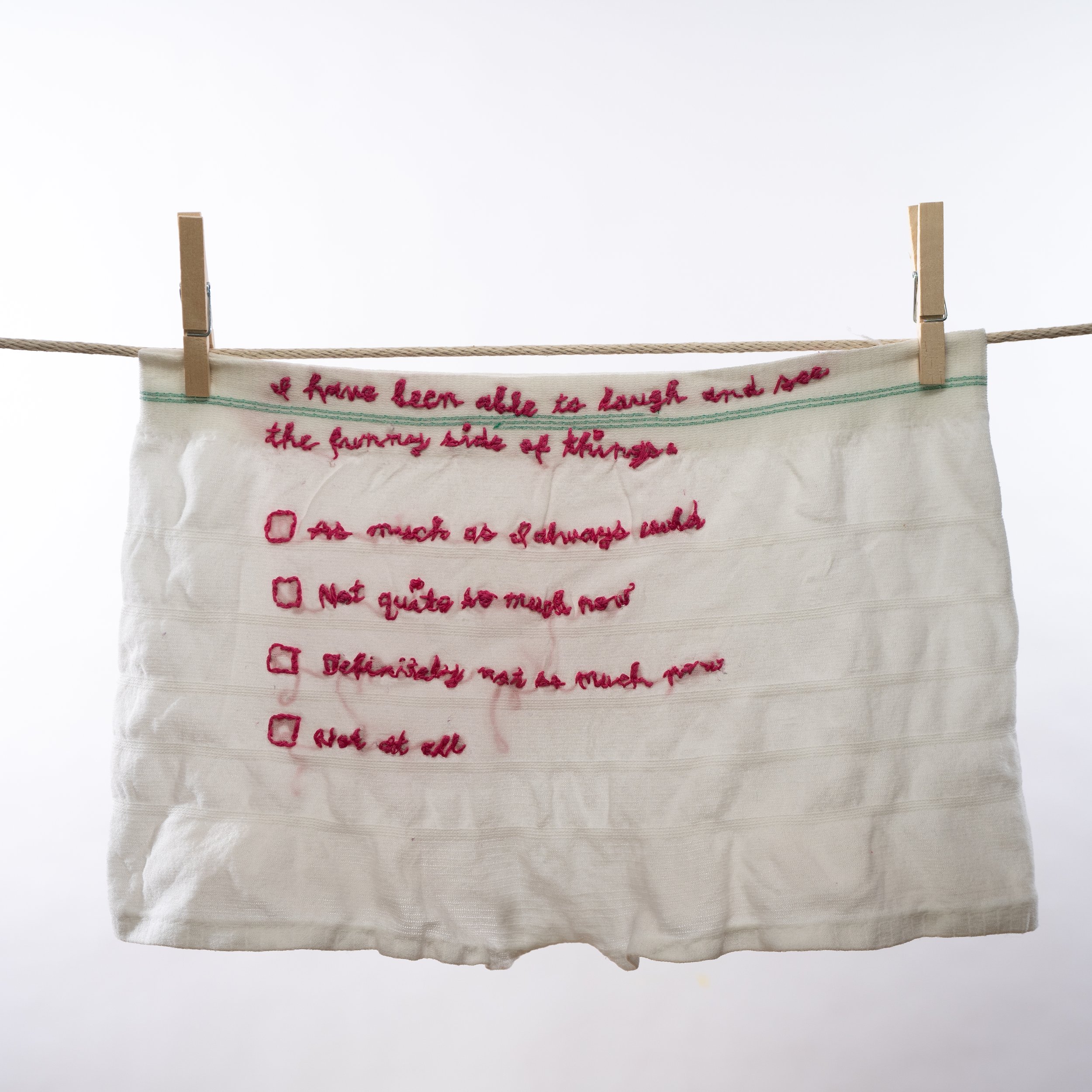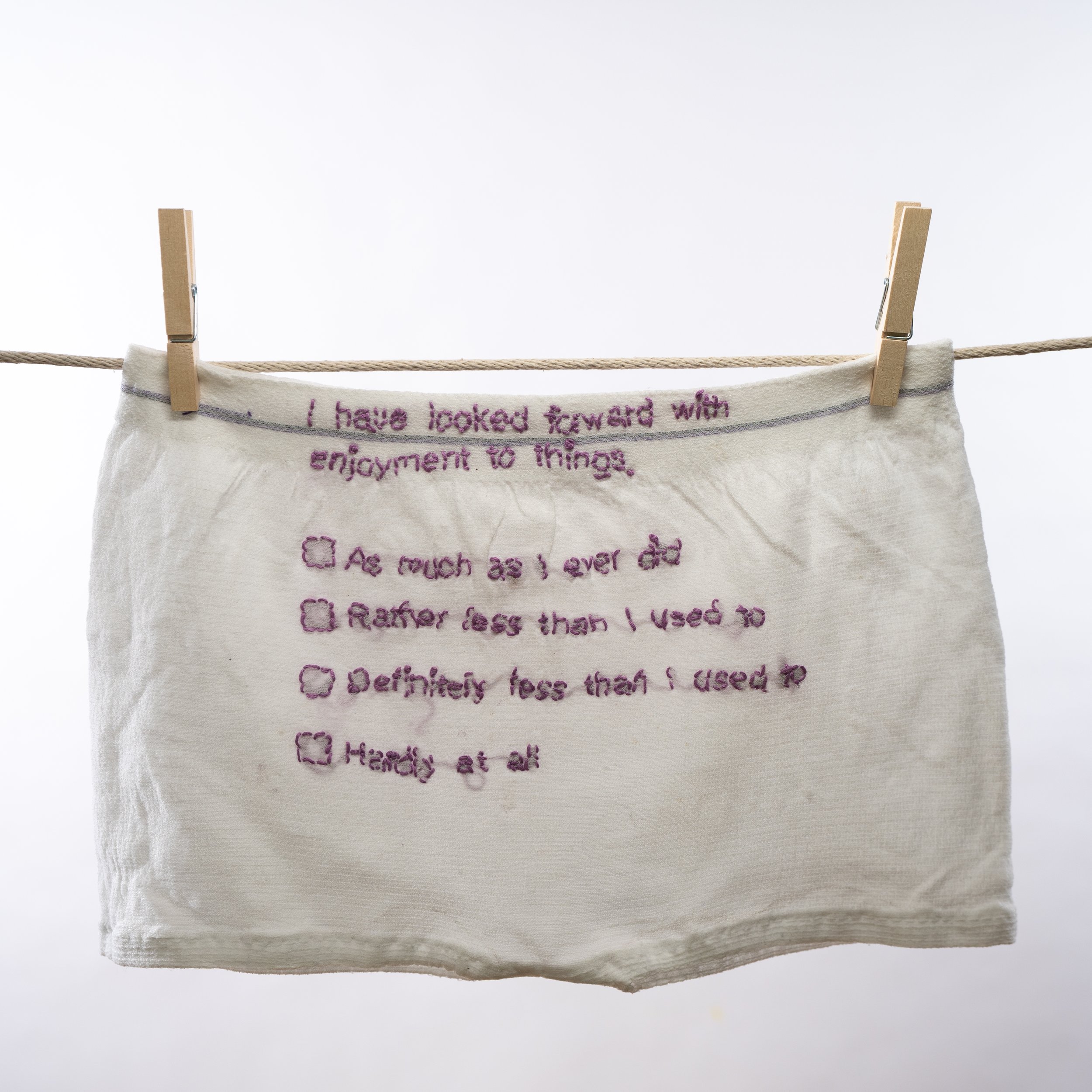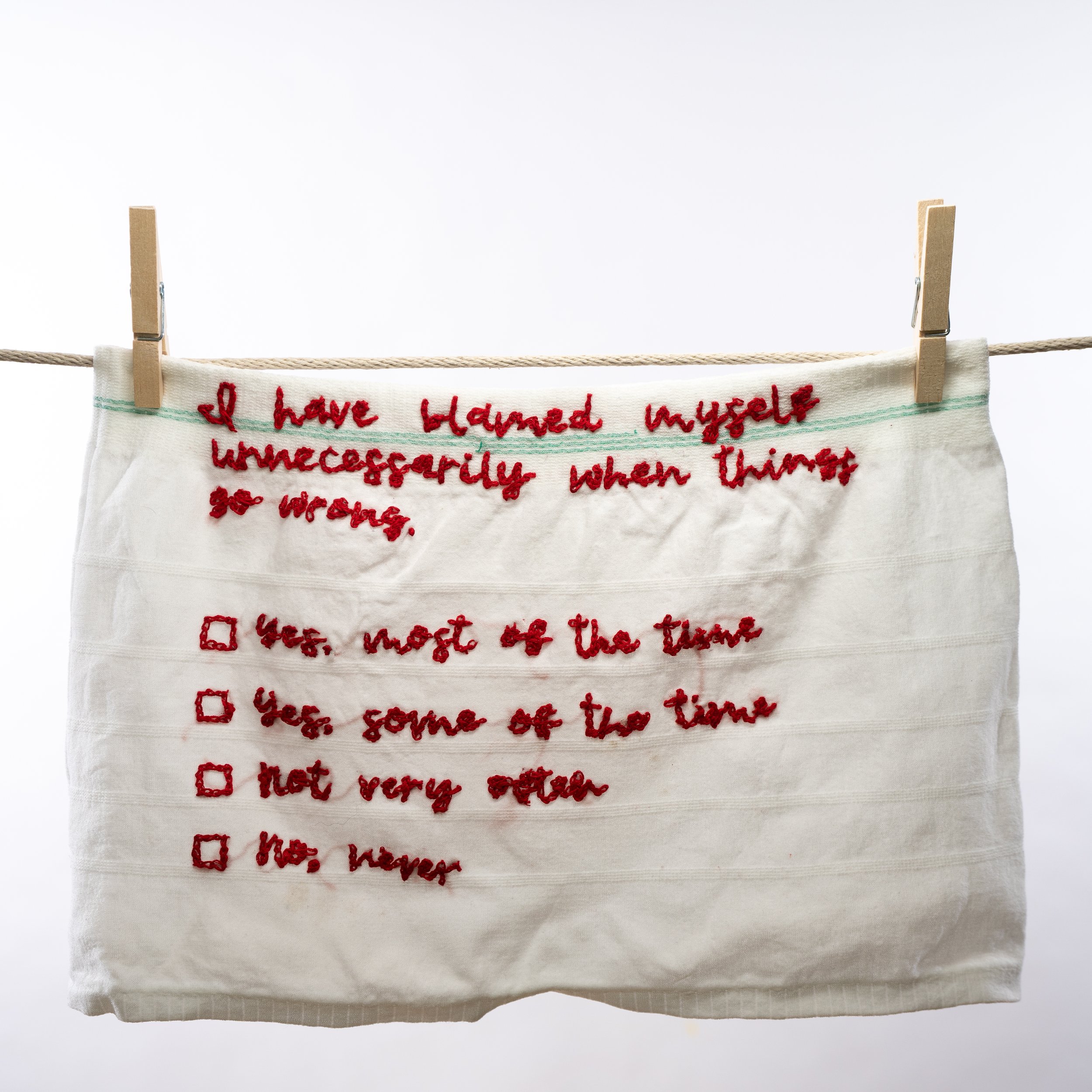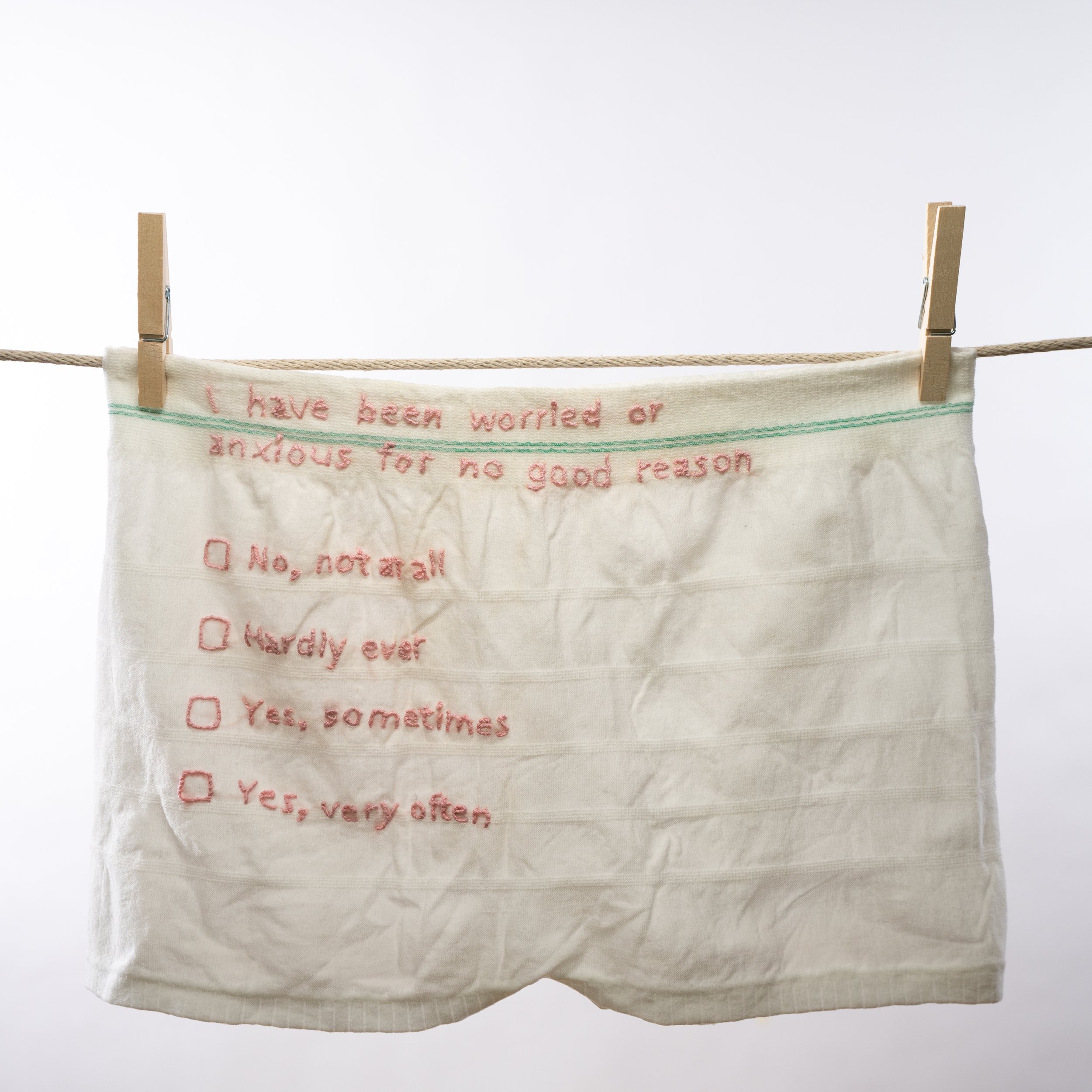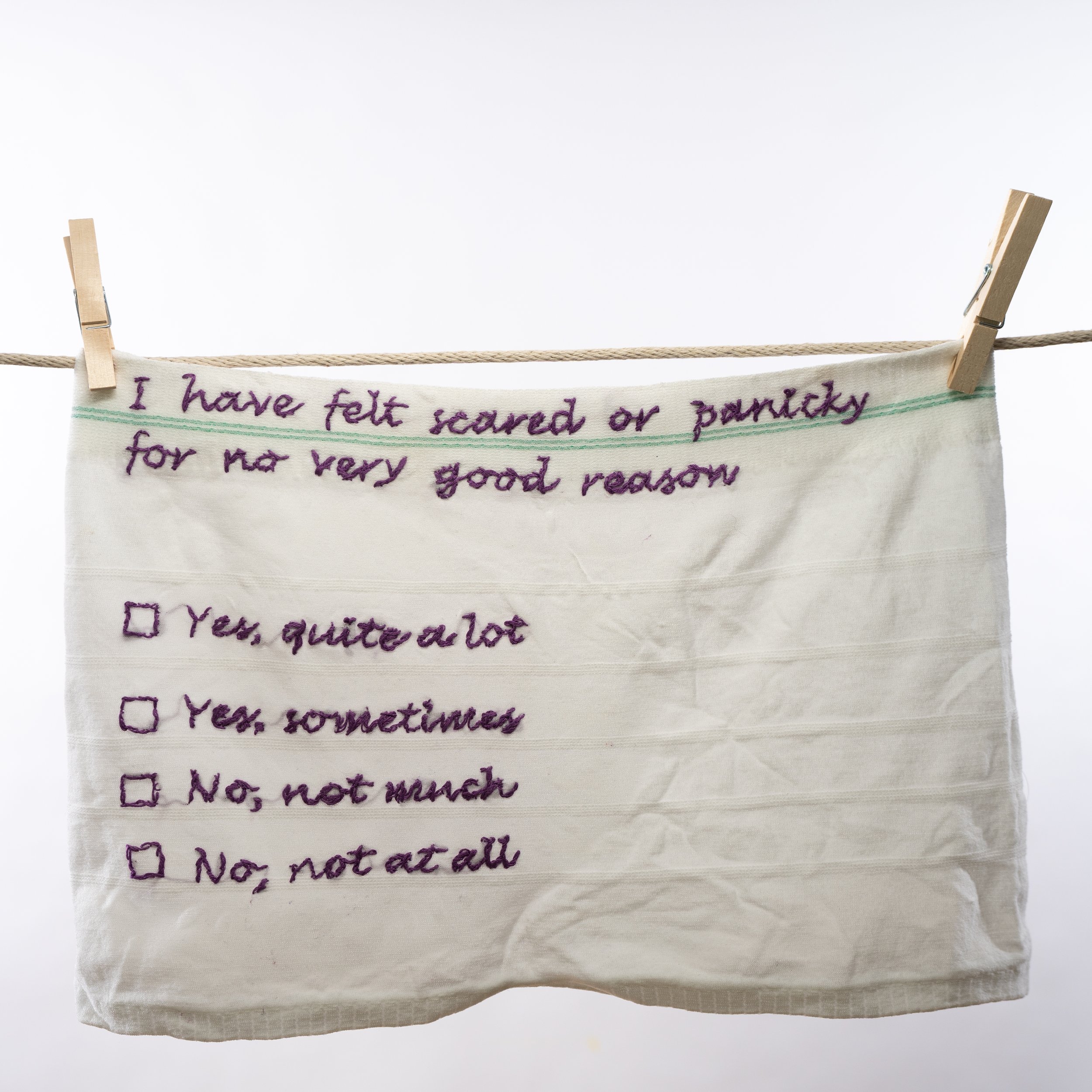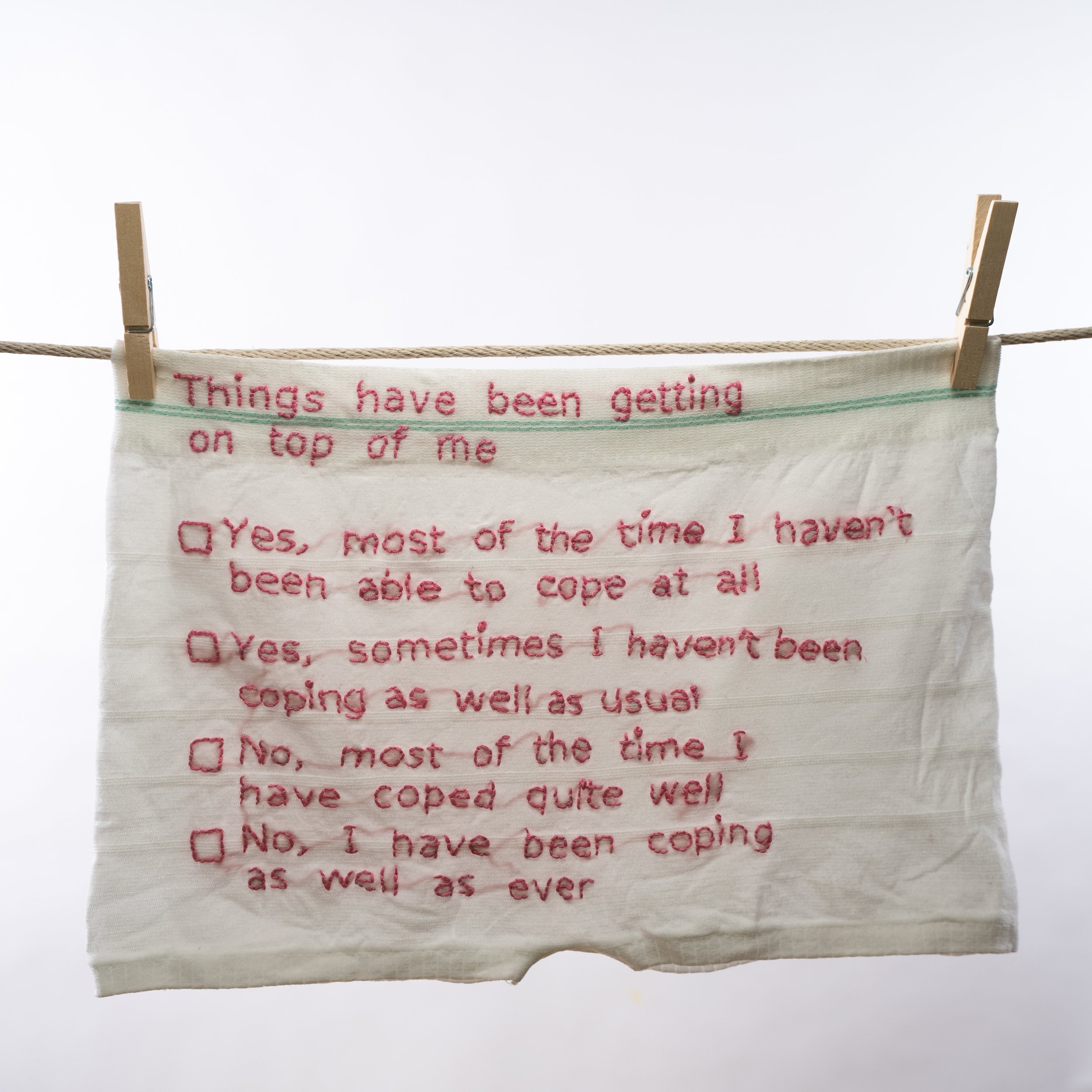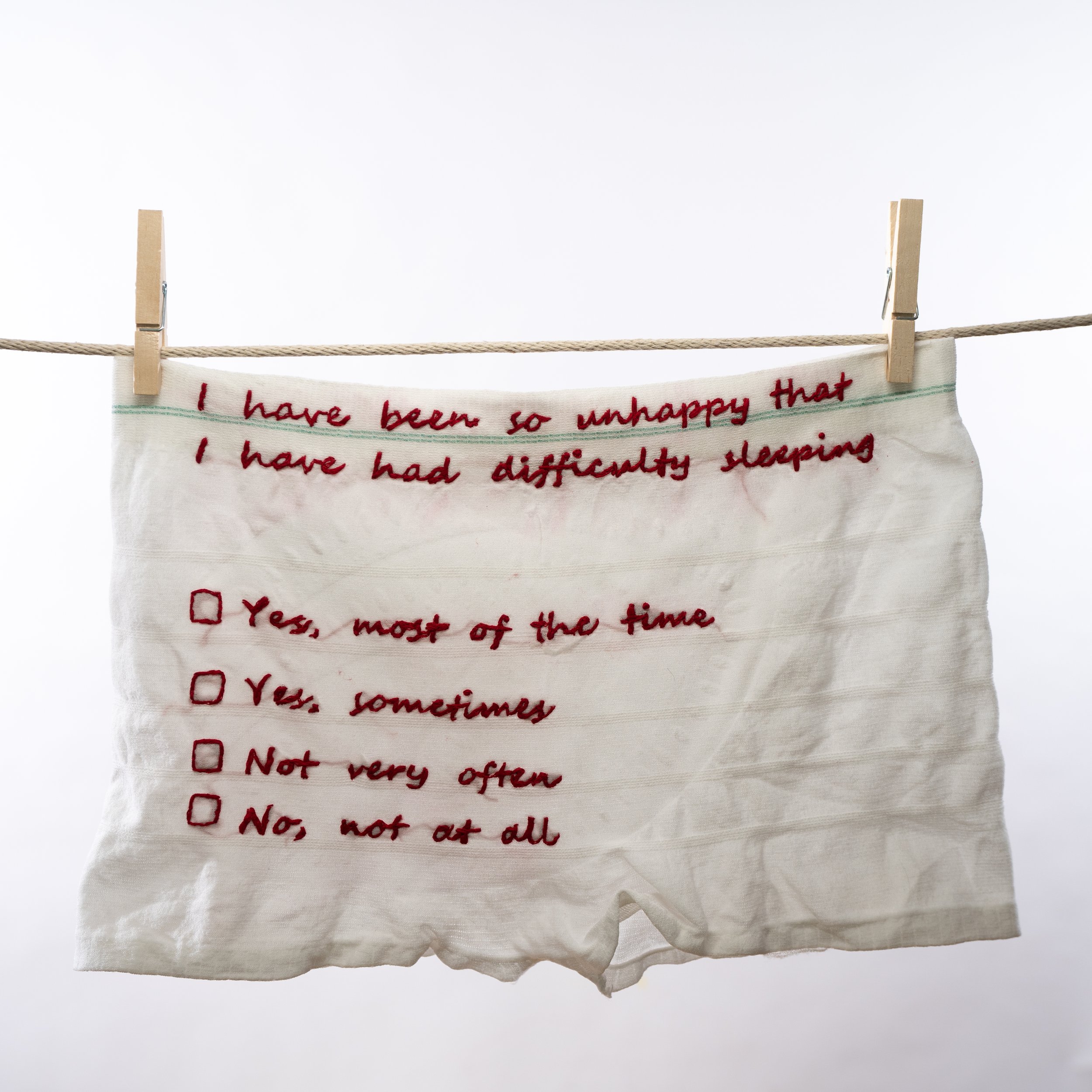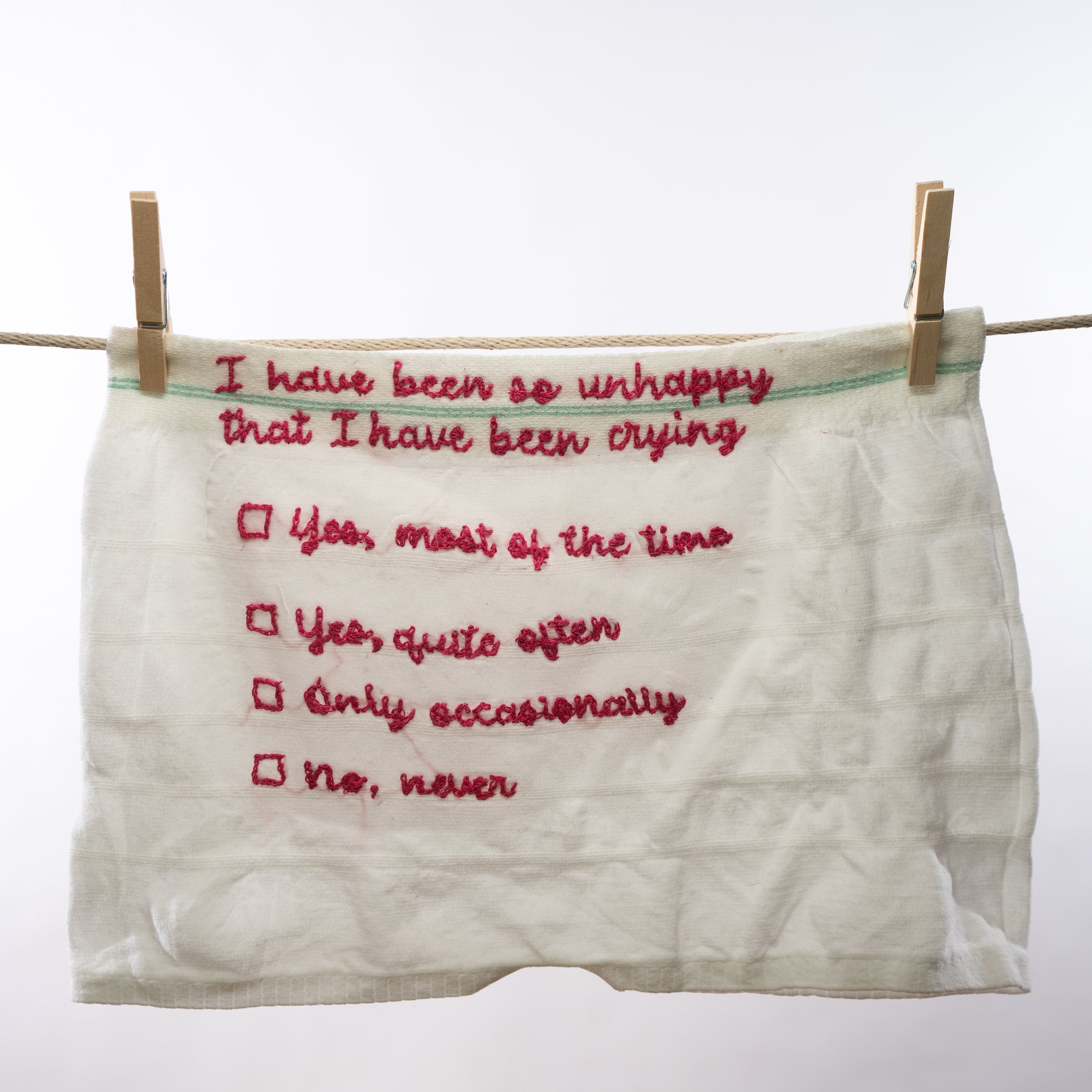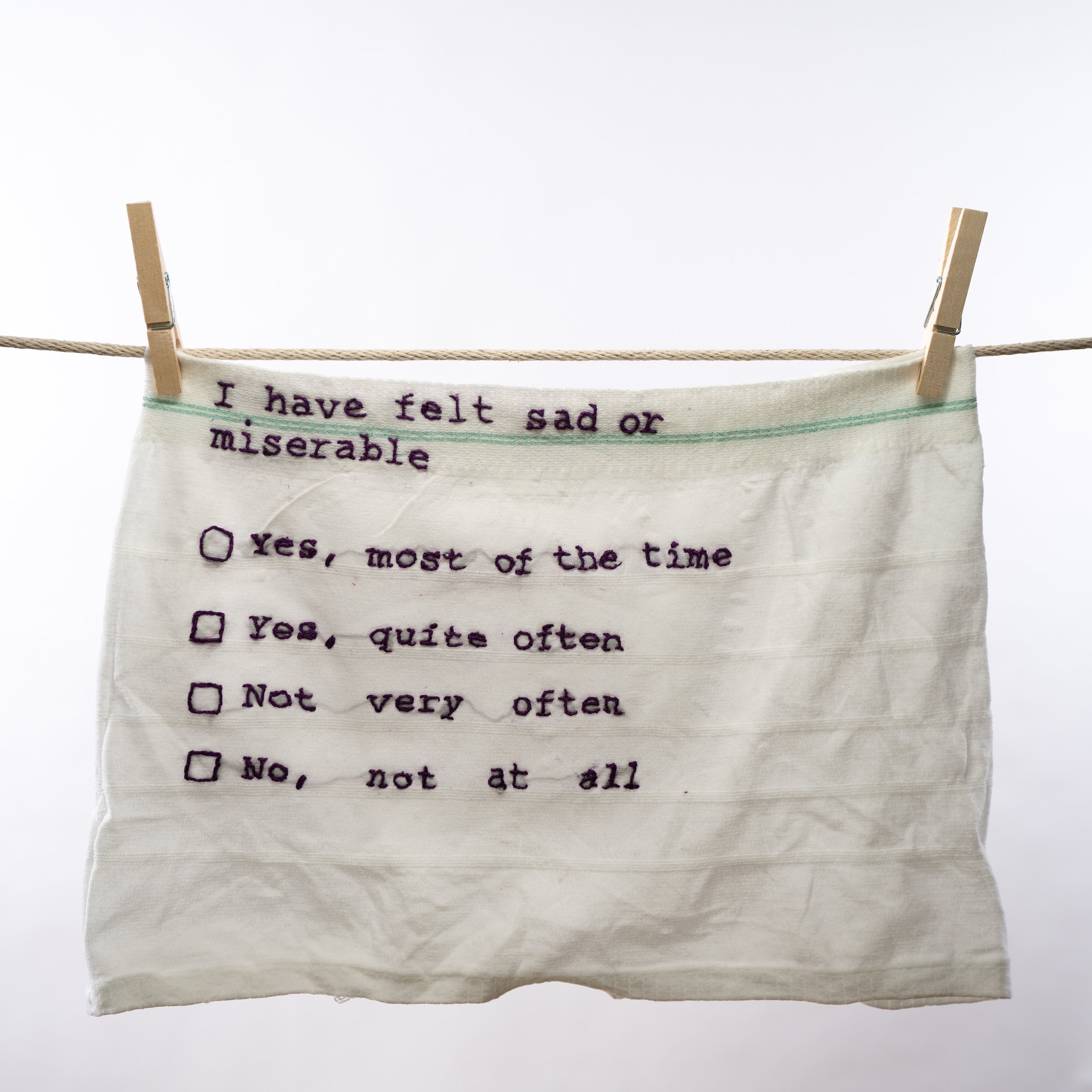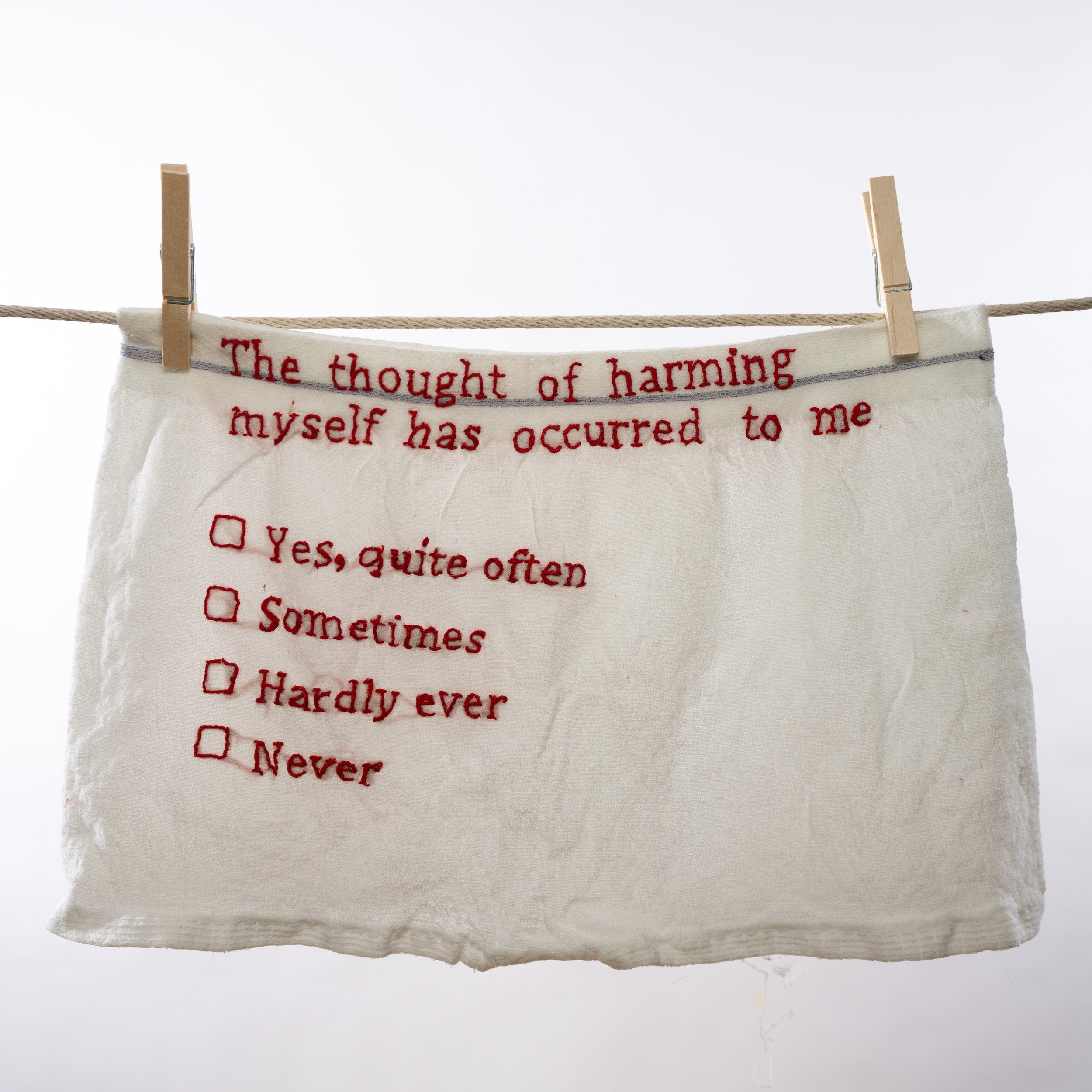The Edinburg Postnatal Depression Scale (EPDS) is a 10-question screening tool that has been translated into over 60 languages and used around the world to identify postpartum depression. It’s handed out in waiting rooms, read off insurance scripts, and delivered through impersonal follow-up calls — often at a time when new mothers are physically and emotionally overwhelmed, unsure how to ask for help, or unaware they even need it.
In Postpartum Underwear, the EPDS is embroidered directly onto the mesh, disposable underwear issued to women in the hospital after childbirth — a visual and tactile confrontation of how critically important, and profoundly overlooked, postpartum mental health support continues to be.
This project was born — literally — in October 2018, when my son Samuel arrived eight weeks early. His birth was unexpected and dramatic; at just 4 pounds, 3 ounces, he spent the early days of his life in the NICU while I was discharged home without him. I was flooded with relief that he was (mostly) okay, and — as I only later understood — a wreck of unnamed emotions I couldn't yet process. I cried through my discharge and the entire car ride home, my body and mind aching for the baby I had carried for nearly eight months but could not take with me.
I pumped milk during our final childbirth class — a class where I went from student to teacher, answering questions from expectant and curious mothers skeptical of my reverence for the hospital-issued mesh underwear. Underwear that, though disposable and designed to be forgotten, I later came to understand as a symbol of how postpartum care begins — and often ends — with the bare minimum.
I remember those underwear vividly — how they held me together in the early days when nothing else could. I also remember the silence around what was happening inside me. The follow-up calls from insurance and hospital reps that always included the same question: “Are you experiencing postpartum depression?” But they never explained what postpartum depression actually was — or how it could show up. I always asked my own question in response: “I’m sad my baby is in the NICU. Is that postpartum depression?” They always paused before responding: “That’s a good question.” Then they moved on — without answering.
At my six-week checkup, with my partner already back at work, I brought Sam with me. He slept on my winter coat spread across the floor while I sat in a paper gown on the exam table, filling out the EPDS form alone. I don’t remember how I answered. I don’t remember anyone asking. What I cannot forget is how poorly equipped our healthcare system is to prioritize — let alone support — a woman’s emotional and psychological recovery, particularly when the focus remains on physical checklists and insurance codes.
Postpartum Underwear reclaims those garments as a site of reflection, recovery, and resistance — and as a demand to treat postpartum mental health with the same urgency and respect as physical healing. By stitching the EPDS directly onto this most vulnerable and utilitarian object, I’m asking: What are we really doing to support new mothers? Who is paying attention? What happens when women don’t know how to name what they’re feeling — and no one around them knows how to ask?
This project is a call for deeper awareness of the invisible labor of postpartum recovery. It’s a reminder that behind every birth is a transformation — one that demands support, not assumptions; visibility, not erasure.
¹ Cox, J. L., Holden, J. M., & Sagovsky, R. (1987). Detection of postnatal depression: Development of the 10-item Edinburgh Postnatal Depression Scale. The British Journal of Psychiatry, 150(6), 782–786. https://doi.org/10.1192/bjp.150.6.782
² Gibson, J., McKenzie-McHarg, K., Shakespeare, J., Price, J., & Gray, R. (2009). A systematic review of studies validating the Edinburgh Postnatal Depression Scale in different cultures. Journal of Affective Disorders, 118(1–3), 115–124. https://doi.org/10.1016/j.jad.2009.01.027
